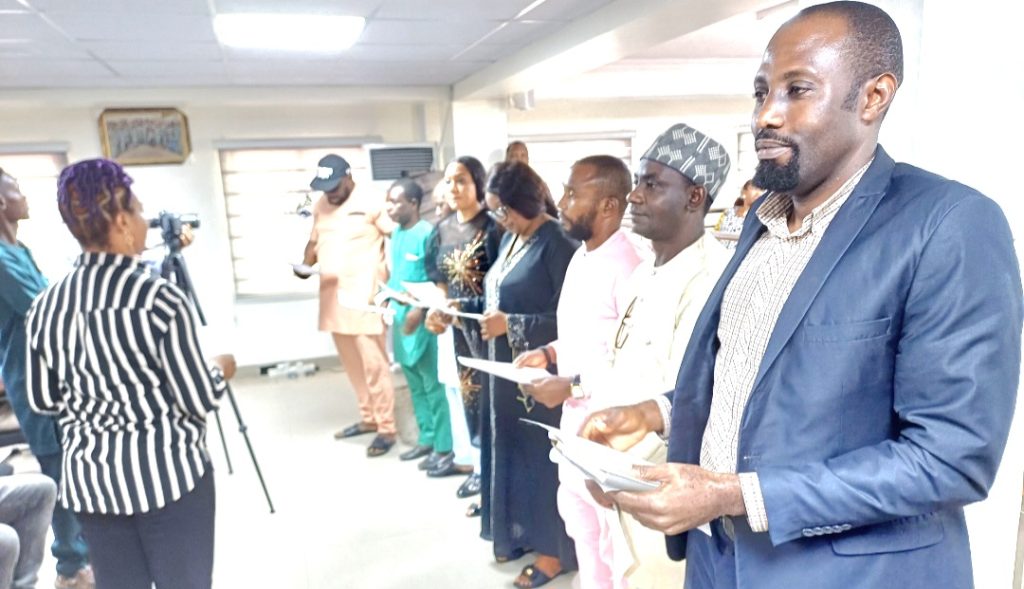
Following the recent unionization of the Council for the Regulation of Freight Forwarding in Nigeria (CRFFN) by the Maritime Workers Union of Nigeria (MWUN), clearing agents operating in the nation’s maritime industry have knocked the Council over what they describe as lack of focus and failure to uphold its regulatory responsibilities.
Reacting to the unionization, the clearing agents voiced their frustrations, accusing the CRFFN of failing to uphold its regulatory roles effectively.
They argue that instead of fortifying the regulatory framework essential for the freight forwarding industry, the CRFFN has sought refuge in unionization amidst escalating pressures.
Shipping Position Daily recalls that this development follows a new government policy that ceased budgetary provisions to various professional institutes and councils, including the CRFFN. This led to unpaid salaries since January 2024, further deepening the crisis within the council.
Investigations by our correspondent revealed that despite the council’s plans to bolster its funding through the collection of the Practitioner’s Operating Fee (POF), compliance among agents has been far from impressive. This lack of compliance is thought to have driven the CRFFN’s decision to seek solidarity with the MWUN, which could help enforce total compliance with POF payments among other things.
During the unionization ceremony at the MWUN headquarters in Lagos, the registrar of the CRFFN, Mrs. Chinyere Uromta, urged the union to stand united with the Council, stating that the CRFFN can achieve a lot with the support of the union.
“I call upon all members of the Union to stand united in our efforts to improve working conditions and abide by the rules and regulations of our different organizations and agencies and to promote safety and enhance the professional development of our workforce,” she stated. “By working together in solidarity, we can achieve great things for the Maritime Industry and for our own beloved country. I am confident that with your support and collaboration, we will overcome any challenges that may come our way and pave the way for a brighter future for the maritime sector in Nigeria,” she added.
However, the unionization has not been well received by everyone. Clearing agents, in discussions with our correspondent, criticized the council for what they see as a diversion from its primary regulatory functions.
Speaking on the issue, Ayo Suleiman, special adviser on media, to the President of Association of Nigerian Licensed Customs Agents (ANLCA), expressed deep concerns over the CRFFN’s current trajectory. “CRFFN is conspicuously missing the point. What are their constitutional roles and responsibilities in the industry? Since their creation, let CRFFN list the number of interventions they have made in the industry on behalf of the practitioners,” he challenged.
Similarly, both Mr Taiwo Fatomilola of the Association of Registered Freight Forwarders of Nigeria (AREFFN) and Barrister Ohambele Emmanuel, also an AREFFN chieftain, both weighed in on the matter. Fatomilola criticized the CRFFN for losing focus and mission, questioning the future of freight forwarding under its watch.
Meanwhile, Emmanuel pointed out that the switch to the MWUN was primarily a strategic union decision and should not impact the CRFFN’s regulatory functions.
But, Mr Francis Omotosho; NAGAFF Registrar offered a different perspective, focusing on the rights to association.
” I believe that everybody has freedom of association. Which means everyone is at liberty to associate together for their mutual benefits by legal means,” Omotosho commented. He sympathized with the workers’ plight, attributing their unionization to the non-payment of salaries since the start of the year due to the withdrawal of government subventions.
On his part also, a former National Secretary of ANLCA, Babatunde Mukaila, highlighted a different aspect of the situation, noting that it is a welcome idea for the protection and security of CRFFN’s lower-level employees. “I think it’s a welcome development for the integrity, security, and survival of the low-level employees of CRFFN, which I believe are not direct employees of the Ministry of Transportation, nor the Ministry of Blue Economy. Moreover, the Governing council has been stood down by the Presidency. It seems no more subventions are coming soon,” he stated.















